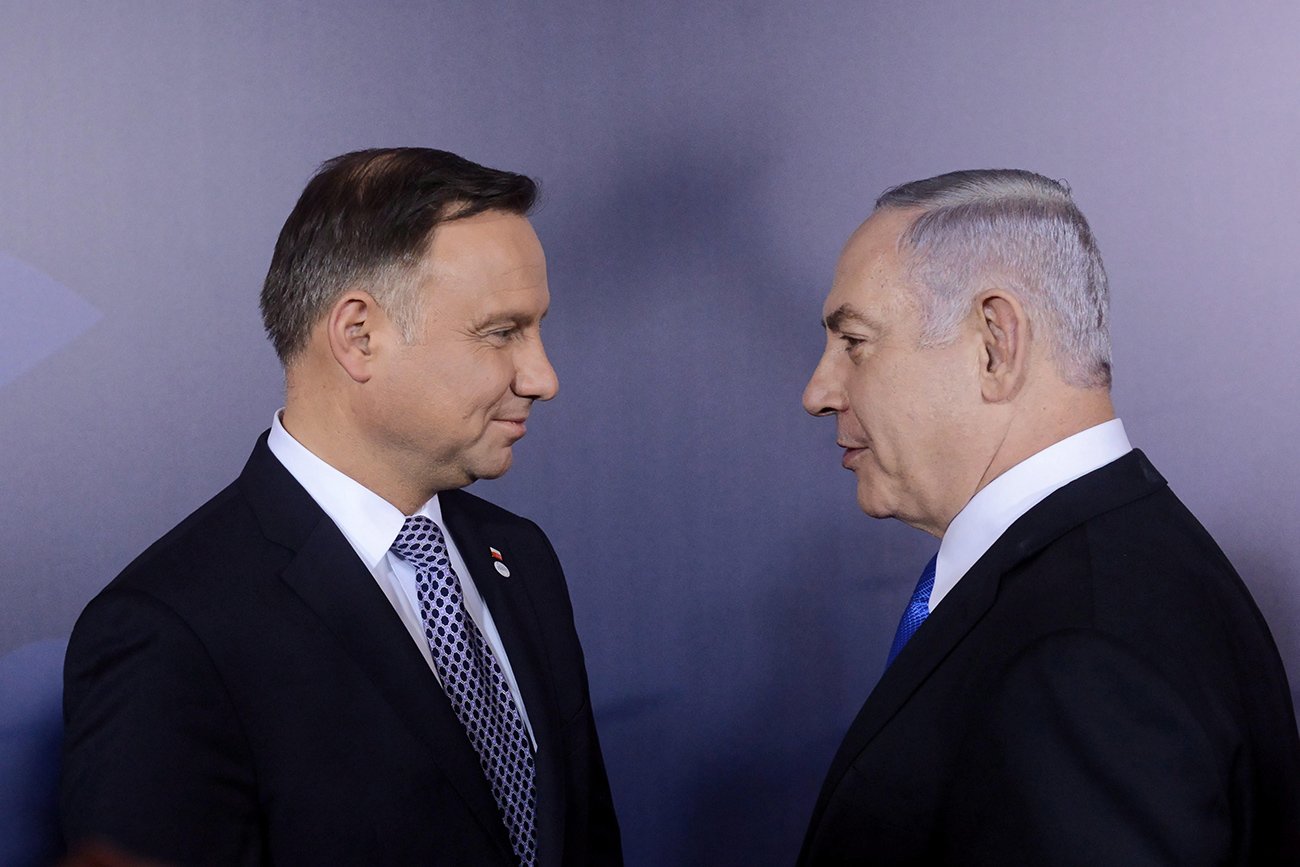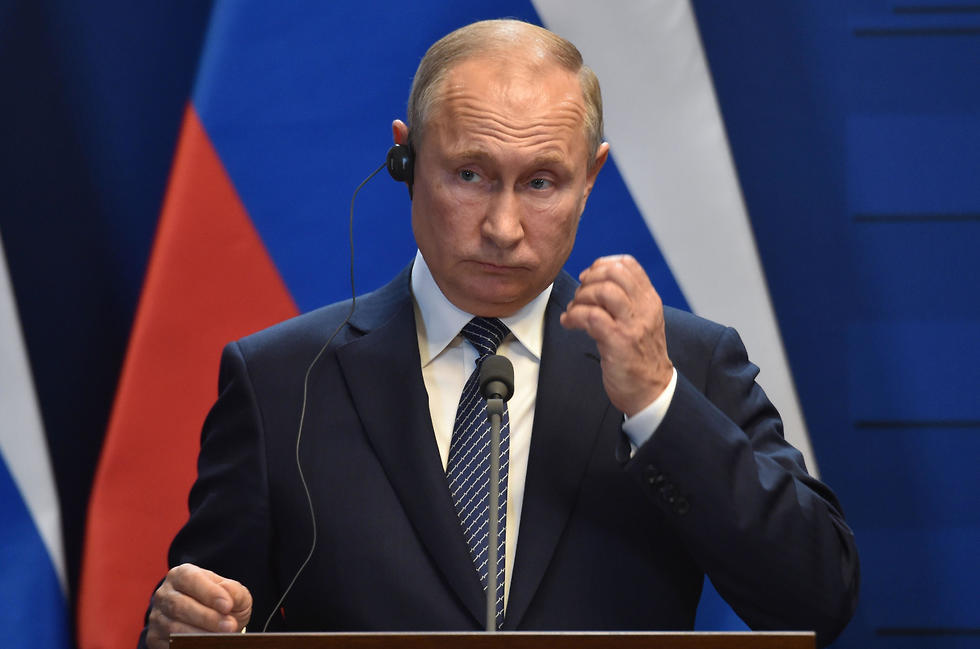Getting your Trinity Audio player ready...
The planned event in Jerusalem to mark the 75th anniversary of the liberation of the Auschwitz-Birkenau Nazi extermination camp will include the Russian and German leaders, but not Poland.
Polish President Andrzej Duda set several conditions for his attendance at the event that organizers in Jerusalem could not or did not want to fulfill, especially, Duda's demand to allow him to speak at the ceremony.
At a meeting with senior officials of Jewish organizations in Warsaw, the Polish leader said that it is unthinkable that the president of a country, whose citizens made up the majority of those killed at the death camp, would not be allowed to speak at the ceremony to mark its liberation, while the German president was allowed to.
The Polish President's statement wasn't entirely accurate – less than a third of the 1.2 million Jewish people who were murdered at Auschwitz-Birkenau were Polish citizens; the rest were brought from all across Europe.
Nevertheless, the absence of the Polish president from the ceremony at Yad Vashem doesn't seem quite right.
The real reason for Duda's demand to speak at the Jerusalem event is Russian President Vladimir Putin's blatant attack on Poland, presenting it as responsible for the outbreak of World War II.
In an hour-long lecture given by Putin in St. Petersburg on December 19, he condemned Polish anti-Semitism (but not Russian) and blamed the Polish government on the eve of World War II for admiring Hitler and being ready to "erect a statue of him in Warsaw" if he fulfilled his idea of deporting Jews from eastern Europe to Africa. Putin also called the then-Polish ambassador to Berlin an "anti-Semitic pig."
All this, while fully justifying Stalin's signing of a non-aggression agreement with Hitler in late August 1939, known as the Molotov–Ribbentrop Pact, which gave Germany the green light to invade Poland in September of that same year.
This attempt by Moscow to depict this agreement as an act supposedly designed to restrain Hitler and protect the Polish Jews is an absolute distortion of history in the service of contemporary Russian propaganda.
One cannot deny the Polish government's harsh anti-Semitic policies between 1933 and 1939, but one can also not deny that Poland was the victim of Nazi and Soviet aggression and that the two totalitarian superpowers explicitly intended to erase the Polish state, which they saw as an artificial product of western diplomacy, off the face of Europe, and to enslave the Polish people for the purposes of the German "Lebensraum.:
Putin's recent speech shocked Poland, prompting a wave of protests by both the government and the opposition.
Duda was worried that Putin would reiterate his accusations in his speech in Jerusalem and demanded the right to respond.
Israel declined Duda's request; involuntarily and unnecessarily entangling itself in a historical dispute between Russia and Poland, or more precisely, between Russian nationalism and Polish nationalism.
With all due respect to the Russian president and with all the objections to the contemporary Polish government, it is only fair to allow the head of the Polish state to be heard at the event as well.
It is still not too late though. President Reuven Rivlin still can apply pressure to change both the organizers' and the Polish president's decision so that Duda can come and speak in Jerusalem.
It should be noted that Prime Minister Benjamin Netanyahu signed a shameful and outrageous reconciliation document two years ago with the Polish prime minister, full of historic distortions and is yet to explain the motive behind signing the document.
Signing a Polish propaganda surrender document – yes.
Giving the Polish president the right to speak at a ceremony marking 75 years for the liberation of the Auschwitz-Birkenau camp, the international symbol of the Holocaust – no?
This is an unreasonable and incorrect political and national move on Israel's part.



